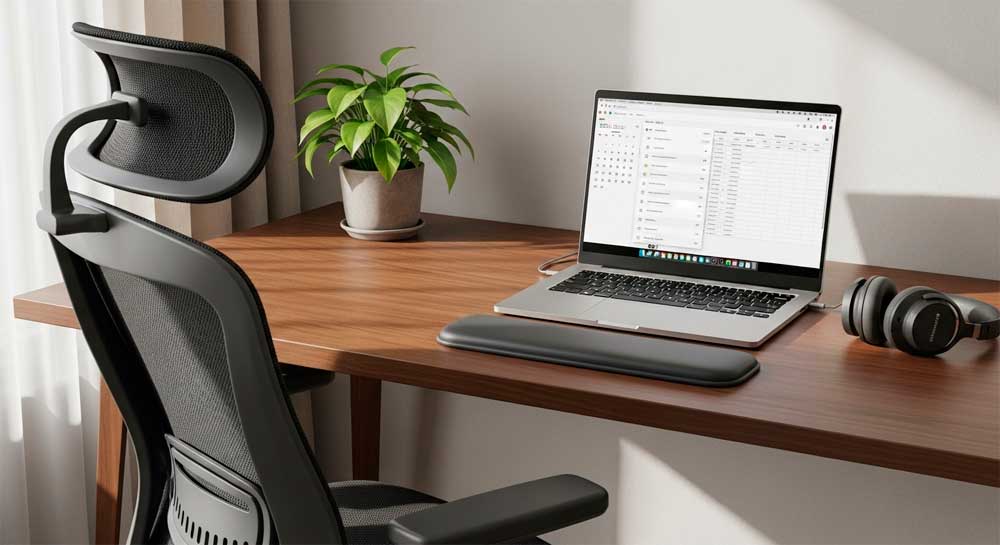In today’s professional landscape, a laptop is more than a tool—it’s a mobile command center that drives productivity. The right choice can mean the difference between a day of seamless efficiency and one of frustrating compromises. A great work laptop empowers you to perform at your best, whether you’re compiling complex reports, developing new applications, or presenting to stakeholders. This guide cuts through the noise to help you find the perfect machine for your professional needs.
This guide provides a clear roadmap for knowledgeable professionals, small business owners, and IT decision-makers. We understand you’re looking for more than a spec sheet; you need a reliable partner for your career.
We will cover the critical factors to consider, from processing power and storage speed to battery life, portability, and operating systems, to help you make an informed and confident decision.
How to Choose the Best Laptops for Work and Your Professional Needs
Choosing the right work laptop involves more than picking the most expensive model; it’s about matching hardware to your specific workflow. A mismatch can lead to overspending on unused features or being underpowered when performance is critical. This guide breaks down the essentials of a business laptop, helping you navigate technical specifications to find a machine that fits your professional needs.
Processor & RAM: The Engine of Your Productivity
The Central Processing Unit (CPU) and Random Access Memory (RAM) are the core components driving your laptop’s performance. For most professionals, an Intel Core i5 or AMD Ryzen 5 provides a solid foundation for everyday tasks. However, if your work involves heavy multitasking, large datasets, virtual machines, or demanding software, upgrading to an Intel Core i7/i9 or AMD Ryzen 7/9 is a wise investment. For RAM, 16GB should be considered the minimum for a smooth professional experience. This allows you to run multiple applications and browser tabs simultaneously without lag. For developers, data scientists, and creative professionals, 32GB or more is highly recommended.
Storage: Speed and Space
Your laptop’s storage drive affects everything from boot times to application launch speeds. A Solid State Drive (SSD) is non-negotiable in a modern work laptop. Specifically, look for an NVMe (Non-Volatile Memory Express) SSD, which offers significantly faster read/write speeds than older SATA-based SSDs. While 256GB is the bare minimum, a 512GB SSD is the sweet spot for most professionals, offering ample space for the operating system, applications, and active project files. If you work with large media files or extensive databases, a 1TB or larger SSD will prevent you from constantly managing storage.
Display: Your Window to the Digital World
Since you’ll be looking at the screen for hours each day, display quality is crucial. A Full HD (1920×1080) resolution is the baseline, but a QHD (2560×1440) display offers a noticeable improvement in sharpness and clarity, making text easier to read and images more detailed. For most users, a 4K display is overkill and significantly drains the battery; it’s primarily beneficial for creative professionals. Look for an IPS panel for excellent color accuracy and viewing angles. A brightness of at least 300 nits is recommended for comfortable indoor use, while 400-500 nits is better for working in brightly lit environments. Screen size is a personal choice between portability (13-14 inches) and screen real estate (15-17 inches).
Battery Life & Portability: Freedom to Work Anywhere
For hybrid work and frequent travel, all-day battery life is essential. Look for laptops rated for 10+ hours of use, but consult real-world reviews, as manufacturer claims are often optimistic. Aim for a machine that can comfortably last an 8-hour workday on a single charge. Portability is equally important. A laptop under 1.5 kg (around 3.3 lbs) is ideal for frequent commuters. The form factor—traditional clamshell, 2-in-1 convertible, or detachable—also influences how and where you can work.
Build Quality & Durability: Built for Business
While consumer laptops can be sleek, business-grade machines are built to withstand the rigors of daily professional use. Look for a chassis made from materials like aluminum or magnesium alloy, which offer a great balance of strength and low weight. Many business laptops are also tested against military durability standards (MIL-STD-810G/H), ensuring they can handle bumps, spills, and temperature changes. A sturdy hinge and minimal keyboard flex are clear indicators of good build quality.
Connectivity & Ports: Your Link to Everything
Ensure the laptop has the ports you need. A modern work laptop should feature a mix of USB-C/Thunderbolt 4 (for charging, data, and video output), legacy USB-A ports for older peripherals, an HDMI port for presentations, and ideally, an SD card reader. For wireless connectivity, Wi-Fi 6E is the latest standard, offering faster speeds and less congestion on compatible networks. A Thunderbolt port is particularly valuable, as it allows you to connect to a docking station with a single cable for power, multiple monitors, and all your accessories.
Security Features: Protecting Your Digital Assets
Data security is paramount for any professional. Look for laptops with modern security features like a fingerprint reader or an IR camera for Windows Hello facial recognition. A TPM 2.0 (Trusted Platform Module) chip is also essential for hardware-based encryption and is a requirement for Windows 11. For physical security, a Kensington lock slot allows you to secure your device in an office environment.
Top Windows Laptops for Business and IT Professionals
For enterprise environments and maximum software compatibility, Windows remains the dominant operating system. The best Windows laptop for work typically includes Windows 11 Pro, which offers critical features like BitLocker encryption, Remote Desktop, and advanced management tools essential for corporate use. These secure business laptops are engineered for reliability, performance, and seamless integration with existing IT infrastructures. For technical roles, the best laptop for IT professionals combines raw power with robust security and a durable, no-nonsense design. Here are the top contenders in the Windows ecosystem.
1. Microsoft Surface Laptop/Pro Series: Versatility Meets Performance
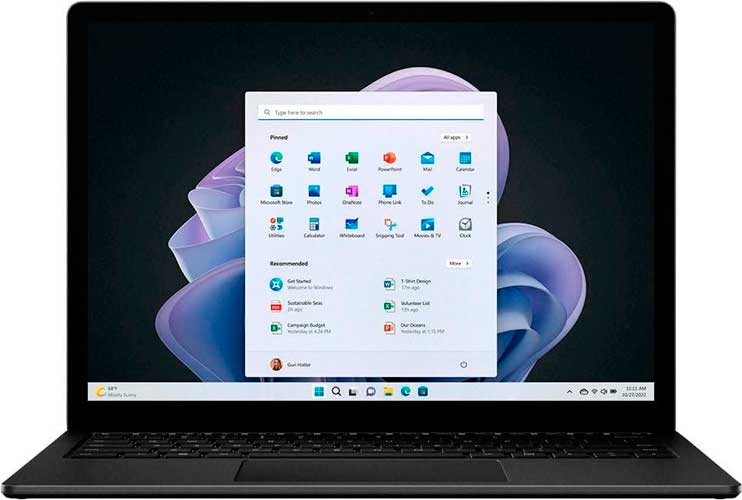
The Surface line represents Microsoft’s vision for the ideal Windows experience. With premium aluminum or Alcantara-covered designs, vibrant PixelSense displays (often with a productivity-focused 3:2 aspect ratio), and flawless touch and pen integration, they are excellent for mobile professionals and creatives. The Surface Pro 9 offers ultimate versatility as a tablet-laptop hybrid, perfect for note-taking and presentations, while the Surface Laptop 5 provides a more traditional, elegant clamshell experience.
Pros: Exceptional build quality, beautiful high-resolution touchscreens, excellent keyboard and trackpad, seamless Windows integration.
Cons: Port selection is often limited, requiring a dongle or dock, and the sealed design makes repairs or upgrades nearly impossible.
2. Dell XPS 13/15/17: Powerhouses for Demanding Tasks
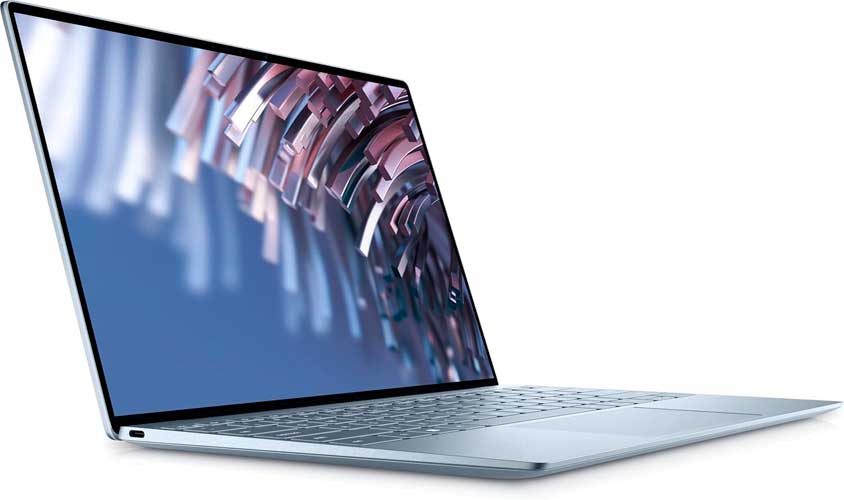
The Dell XPS series has long been the benchmark for premium Windows ultrabooks. Known for their stunning, nearly bezel-less InfinityEdge displays and powerful internals packed into a sleek CNC-machined aluminum chassis, they are favorites among developers, content creators, and power users. The XPS 13 is a compact marvel of portability and performance, while the XPS 15 and 17 can be configured with potent Intel Core i9 processors and dedicated NVIDIA graphics, making them true desktop replacements capable of handling video editing, 3D rendering, and compiling large codebases.
Pros: Industry-leading performance, gorgeous 4K OLED display options, premium and durable build.
Cons: Can be expensive, and high-performance components can sometimes lead to thermal throttling under sustained heavy loads.
3. Lenovo ThinkPad X1 Carbon/Extreme: The IT Professional’s Choice
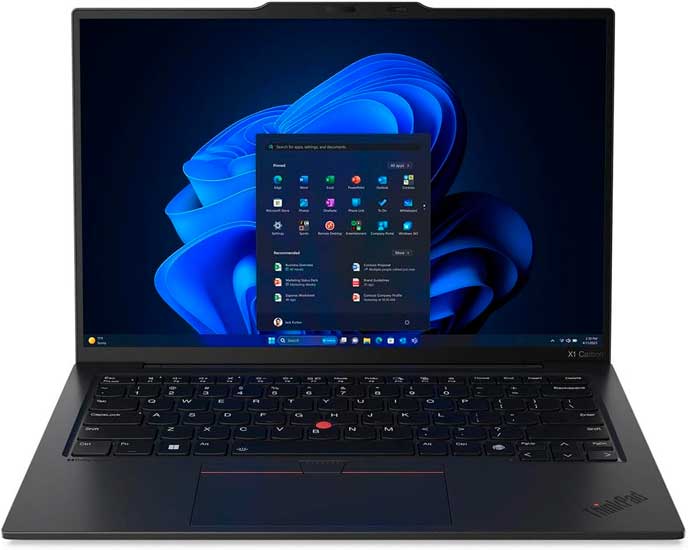
For decades, the ThinkPad name has been synonymous with business. The ThinkPad X1 Carbon is the pinnacle of this legacy, offering an incredibly lightweight yet durable carbon-fiber chassis, the legendary best-in-class keyboard, and a suite of enterprise-grade security and management features. It is the quintessential tool for traveling executives or IT administrators who value reliability above all else. For those needing more graphical horsepower, the ThinkPad X1 Extreme or the P-series workstations pack dedicated GPUs and more powerful CPUs into a similarly robust package.
Pros: Unmatched keyboard feel and reliability, top-tier security features (including a webcam shutter and optional privacy screen), MIL-STD durability, and lightweight design.
Cons: The design is functional and utilitarian, which may not appeal to everyone, and they command a premium price.
4. HP Spectre/EliteBook Series: Style and Substance for Executives
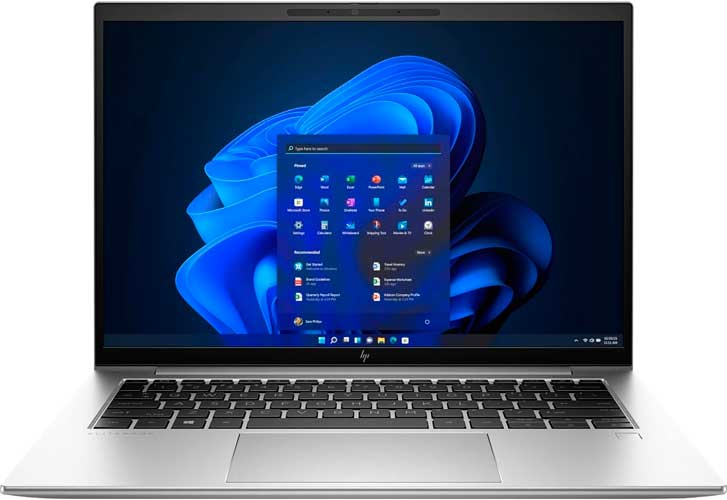
HP offers two compelling lines for professionals. The Spectre series, especially the x360 models, blends stunning gem-cut aesthetics with powerful performance and 2-in-1 flexibility. They are perfect for executives and consultants who want a device that looks as good as it performs. The EliteBook series is HP’s answer to the ThinkPad, focusing on robust security, manageability, and durability. Features like HP Sure View (an integrated privacy screen) and advanced endpoint security make them a top choice for security-conscious organizations.
Pros: Striking and premium design, strong all-around performance, comprehensive security features on EliteBook models.
Cons: Can be priced higher than competitors with similar specs and may be slightly heavier than direct rivals.
Best Laptops for Small Business Owners and Mobile Professionals
For a small business, every investment matters. The best laptop for a small business owner delivers reliability, solid performance, and excellent value without an enterprise-level price tag. The focus shifts to practicality: a machine portable enough for remote work, powerful enough for daily tasks, and dependable enough not to require a dedicated IT department. These budget-friendly and portable business laptops are designed to help you run your business efficiently from anywhere.
5. Acer Swift/TravelMate Series: Budget-Friendly Productivity
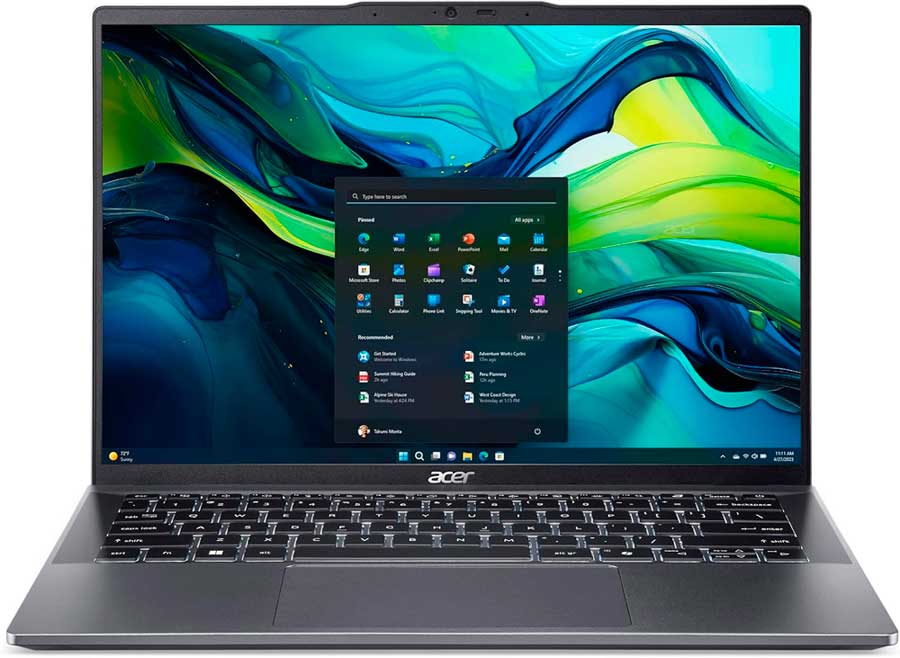
Acer is known for offering excellent performance for the price. The Swift series, particularly the Swift 3 and Swift 5, provides lightweight, all-metal designs, good performance for office productivity, and impressive battery life at a very competitive price point. For those needing more business-centric features and durability, the TravelMate series offers enhanced security and a more robust build. These laptops are a fantastic choice for startups and small business owners who need reliable machines without a massive capital outlay.
Pros: Excellent value for money, solid performance for everyday business tasks, often very lightweight and portable.
Cons: Build quality may not feel as premium as top-tier models, and they may lack some advanced security features.
6. ASUS ZenBook/ExpertBook Series: Stylish & Capable

ASUS consistently delivers laptops that balance stylish design with innovative features and strong performance. The ZenBook series is known for its sleek, concentric-circle metal finish, vibrant OLED display options, and unique features like the ScreenPad (a touchpad that doubles as a secondary screen). They offer a premium feel without the premium price of a Dell XPS. The ExpertBook line is their business-focused offering, emphasizing extreme portability, long battery life, and military-grade durability, making it an excellent choice for the mobile professional.
Pros: Elegant and stylish designs, often feature high-quality OLED displays, innovative features that can boost productivity.
Cons: Battery life can be inconsistent across different models and configurations, and they are less common in large corporate environments.
7. Apple MacBook Air/Pro (M-series): For the Mac-Centric Business
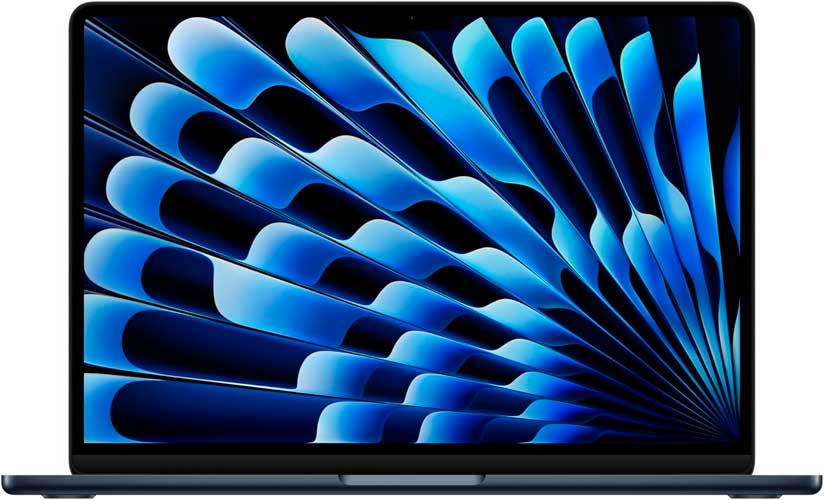
With Apple’s M-series chips, MacBooks have become powerhouses of performance and efficiency. The MacBook Air is a phenomenal choice for most small business owners, offering a fanless, silent design, incredible performance for its size, and truly all-day battery life. For those with more demanding needs like video editing or software development, the MacBook Pro offers even more power and a superior display. For businesses already invested in the Apple ecosystem (using iPhones and iPads), the seamless integration through iCloud and Handoff can be a massive productivity booster.
Pros: Class-leading performance-per-watt, exceptional battery life, premium build quality, and a highly stable and secure operating system.
Cons: High initial cost, limited port selection (requiring dongles), and macOS can have a learning curve for lifelong Windows users.
Comparing Top Business Laptops: 14-inch vs. 16-inch Models
Choosing the right screen size is a critical decision when selecting a work laptop. For serious productivity, the most popular categories are 14-inch and 16-inch models, representing a fundamental choice between portability and power. Your ideal size depends on your work style and environment. Let’s break down the pros and cons to help you determine whether a compact business laptop or a large-screen model is the right fit.
The Agile 14-inch Laptop: Portability Meets Productivity
The best 14-inch laptop for business strikes an almost perfect balance. It offers a more comfortable workspace than a 13-inch model, yet remains compact and light enough to carry easily. This form factor is the champion of hybrid work, equally at home on a cramped airplane tray table, a coffee shop counter, or a hot desk. Laptops in this class, like the iconic Lenovo ThinkPad X1 Carbon or the versatile Dell XPS 14, typically prioritize efficiency and battery life. They are powerful enough for the vast majority of business tasks, from complex spreadsheets to presentations and video calls, making them the go-to choice for consultants, managers, and frequent travelers.
The Expansive 16-inch Laptop: Maximum Screen Real Estate for Work
When your work demands an immersive visual canvas, the best 16-inch laptop for work is the solution. That extra screen real estate is a game-changer for multitasking, allowing you to comfortably view two documents side-by-side. This size is a favorite among programmers who need to see more lines of code, graphic designers who require pixel-perfect detail, and financial analysts working with sprawling spreadsheets. The larger chassis also accommodates more powerful components and superior cooling systems. This means models like the Apple MacBook Pro 16 or the Dell XPS 16 can sustain peak performance for longer, making them ideal for video rendering, data compilation, and other intensive tasks. Many also include a full numeric keypad, a crucial feature for data entry.
Key Decision Factors:
- Workload: If your day is spent in Microsoft Office, email, and web browsers, a 14-inch is perfect. If you’re a creative or technical professional running demanding software, the power and screen of a 16-inch model will be a significant advantage.
- Mobility: How often are you on the move? A daily commute or frequent travel makes the lighter, more compact 14-inch form factor a better choice. If your laptop primarily stays on one desk, the benefits of a 16-inch screen outweigh its extra bulk.
- External Monitors: Do you rely on a multi-monitor setup at your main workspace? If so, you can likely use a more portable 14-inch laptop, as its smaller screen is less of a factor when docked. If the laptop screen is your primary display, a 16-inch model will be far more comfortable.
Final Verdict: Choosing Your Ideal Work Companion
Navigating the options for processors, displays, and security can be complex, but the path to your ideal work laptop should now be clearer. There is no single “best” machine for everyone; the right choice depends on your professional demands, mobility needs, and budget. As this comparison shows, the needs of a traveling consultant differ greatly from those of a desk-bound video editor. By investing in a device that aligns with your workflow, you are not just buying hardware—you are investing in your own productivity and success.
To make your final decision easier, here is some actionable buying advice based on common professional profiles:
- For the Ultimate Power User / IT Professional: Your priorities are maximum performance, reliability, and security. Look no further than a high-spec Lenovo ThinkPad X1 Extreme or a Dell XPS 15/17 with a Core i7/i9 processor, 32GB of RAM, and a dedicated NVIDIA GPU. These machines are built to handle compiling code, running virtual machines, and managing complex networks without breaking a sweat.
- For the Mobile Executive / Small Business Owner: Your priorities are a balance of portability, performance, and style. The best 14-inch laptop for business, such as the Lenovo ThinkPad X1 Carbon or the HP Spectre x360 14, offers the perfect blend. Alternatively, if you’re in the Apple ecosystem, the MacBook Air (M3/M4) is an unbeatable choice for its incredible battery life and potent performance in a lightweight package.
- For the Budget-Conscious Professional: You need a dependable workhorse that delivers essential features without a premium price. An Acer Swift 3 or an ASUS ZenBook 14 provides excellent value, offering solid performance, a quality screen, and good portability for a fraction of the cost of flagship models. These are the best laptops for small business owners looking to maximize their return on investment.
Ultimately, identify your most critical need—whether it’s marathon battery life, raw processing power, or robust security—and let that guide your decision. Choosing the laptop that best serves that primary need will ensure you have a reliable work companion for years to come.
Frequently Asked Questions About Work Laptops
What’s the ideal RAM for a business laptop?
For most professionals, 16GB is the new standard and our recommended minimum. It ensures smooth multitasking across multiple applications, browser tabs, and communication tools. If your work involves video editing, large-scale data analysis, software development, or using virtual machines, investing in 32GB (or more) is highly advisable to prevent performance bottlenecks.
Is a dedicated graphics card necessary for work?
For the vast majority of business tasks—such as email, word processing, spreadsheets, and presentations—a dedicated graphics card (dGPU) is unnecessary. Modern integrated graphics (like Intel Iris Xe or AMD Radeon Graphics) are more than capable. However, a dGPU is essential for professionals in fields like graphic design, 3D modeling, video editing, architecture (CAD), and AI/machine learning.
How important is battery life for a work laptop?
It is critically important, especially for mobile professionals, hybrid workers, and frequent travelers. Constantly searching for a power outlet is a major drain on productivity. Aim for a laptop that provides at least 8-10 hours of real-world usage. Always check independent reviews for realistic battery tests, as manufacturer claims are often based on ideal, low-intensity conditions.
Should I get Windows Pro or Home for my business laptop?
For any serious business use, Windows Pro is the recommended choice. It includes crucial features not found in the Home edition, such as BitLocker Drive Encryption for data security, Remote Desktop for accessing your PC from anywhere, and Group Policy Management and Azure Active Directory support, which are vital for businesses that need to manage multiple devices securely.How often should I upgrade my work laptop? A: A high-quality business laptop should last between three to five years. The upgrade cycle depends on several factors: performance degradation as software becomes more demanding, battery health (which naturally declines over time), and the need for new features or security standards. If your laptop is slowing down your workflow, it’s time to consider an upgrade.

